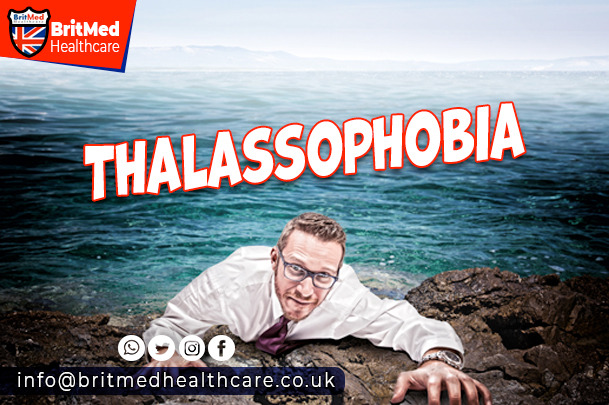Thalassophobia: Etiology, Manifestations, and Interventions
Thalassophobia is a widely recognized phobia that is highly prevalent worldwide.
Thalassophobia is an anxiety disorder characterized by an excessive or illogical dread of the sea
and activities related to it. In this post, we will explore the causes, symptoms, and treatment
options associated with thalassophobia.
Thalassophobia is a specific phobia characterized by an intense and irrational fear of the sea or
deep bodies of water.
Thalassophobia is a specific phobia characterized by an excessive and irrational dread of the
ocean. It presents itself in several forms, such as the phobia of swimming, boats, or even the
sheer contemplation of being near the ocean. Thalassophobia can cause physical symptoms such
as tachycardia, perspiration, and tremors when exposed to sea-related events.
Factors contributing to Thalassophobia
The etiology of thalassophobia: remains incompletely comprehended and may indeed be
somewhat intricate. Several potential factors may contribute to this phenomenon:
Genetic predisposition: An individual genetic makeup may increase their susceptibility to
acquiring phobias.
Traumatic experiences: Individuals may develop thalassophobia as a result of distressing
occurrences, such as experiencing drowning or near-drowning incidents.
Media exposure: The presence of frightening stories or images related to the sea may contribute
to the development of thalassophobia together with other factors.
Familial history: The presence of phobias in a family member can heighten the probability of
thalassophobia in an individual.
Symptoms of Thalassophobia
The symptoms of thalassophobia vary from person to person. Several typical symptoms include:
Thalassophobia is an intense and irrational dread or anxiety specifically triggered by situations
associated to the sea.
Individuals with thalassophobia tend to avoid activities or places that involve the water.
Thalassophobia can manifest in many bodily symptoms such as increased heart rate, heavy
sweating, or trembling.
Thalassophobia can also cause difficulty in concentrating or sleeping owing to persistent
thoughts about the sea.
Management of Thalassophobia
Fortunately, there are therapeutic modalities available to address thalassophobia. The following
are the predominant therapeutic approaches utilized for treating this phobia:
Cognitive-behavioral therapy: This therapeutic approach assists patients in identifying and
modifying the pessimistic cognitions linked to their phobia.
Exposure therapy involves systematically and progressively exposing a patient to different
situations related to the water, while ensuring their safety and maintaining control over the
environment.
Relaxation techniques such as deep breathing, progressive muscle relaxation, or visualization
can be used to assist individuals with thalassophobia in managing their anxiety and reducing the
associated symptoms.
Medication: In certain cases, it may be necessary to prescribe medication to assist individuals in
managing their symptoms.
Categories of Thalassophobia
There are various forms of thalassophobia, which include:
• Aquaphobia refers to an extreme fear of water or the act of drowning.
• Hydrophobia, sometimes known as aquaphobia, is an intense fear or aversion to water or
drowning, often associated with the symptoms of rabies.
There is no text provided. Thalassophobia is a term used to describe a specific phobia
characterized by an irrational fear of the sea.
In conclusion
This phobia can be quite debilitating, directly impeding the affected individual quality of life.
While some may find this notion absurd, it is a genuine source of worry for some individuals.
Therapeutic interventions can effectively treat the condition. If an individual is aware of the
origins and symptoms of thalassophobia, they can take proactive measures to effectively manage
their symptoms and improve their overall well-being.
Hashtags:
#Thalassophobia
#FearOfTheSea
#AnxietyDisorder
#MentalHealth
Websites:
BritMed Healthcare (https://britmedhealthcare.co.uk/blog/)
Blog – BritMed Healthcare
Sertraline (https://www.drugs.com/pro/sertraline.html)
Contact Us
To book a consultation with Professor Ahmed El-Missiry, please visit:
https://www.nightingalehospital.co.uk/specialist/prof-ahmed-elmissiry/




